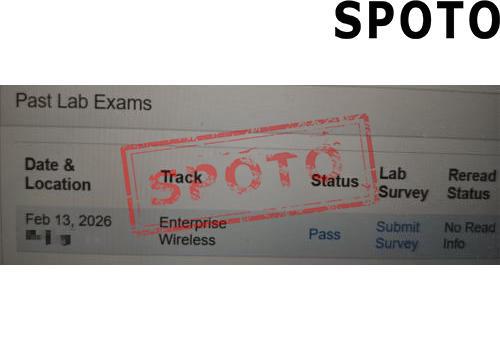
Table of Contents
1. What Does a Network Support Engineer Do?
A Network Support Engineer is an IT specialist responsible for the design, implementation, maintenance, and real-time support of an organization's network infrastructure. Their primary role is to ensure seamless connectivity and optimal performance across systems such as LANs, WANs, cloud networks, and servers.
They troubleshoot technical issues, monitor system performance, and provide user support to maintain uninterrupted access to network services. Depending on the organization, responsibilities may include upgrading communication systems, enhancing data security, or deploying new technologies to support operational goals.
In essence, network support engineers play a critical role in keeping businesses connected, secure, and operational—supporting everything from file sharing to communication platforms and external data access.
2. Key Skills for a Career in Network Support Engineering
Strong IT Proficiency: Demonstrated excellence in managing and troubleshooting computer networks, hardware, software, and systems infrastructure.
Analytical Problem-Solving: Ability to diagnose complex technical issues and implement effective solutions in a timely manner.
Effective Communication: Capable of explaining technical concepts clearly to non-technical users, both verbally and in writing.
Organisational & Multitasking Skills: Skilled in prioritising tasks, managing workloads efficiently, and responding to multiple technical issues simultaneously.
Team Collaboration: Works well in cross-functional teams, supporting colleagues and contributing to group problem-solving.
Commitment to Continuous Learning: Dedicated to staying current with evolving technologies, certifications, and industry best practices.
Business and User Awareness: Understands the organization's operational goals and aligns IT support efforts with user needs and business priorities.
3. Career Insights: Salary, Outlook & Related Roles
(1) How Much Do Network Support Engineers Earn?
As of April 15, 2026, the average annual salary for a Network Support Engineer in the United States is $92,475, which equates to approximately $44.46 per hour, or $1,778 per week and $7,706 per month.
In Los Angeles, the average salary is even higher, reaching $99,643 per year—about $47.91 per hour. According to ZipRecruiter, salaries in this role typically range from $74,500 at the 25th percentile to $132,000 for top earners, reflecting both demand and cost of living in the region.
(2)Job Outlook and Growth Potential
In the United States, the Computer Systems Design and Related Services sector employs the largest share of network support engineers, accounting for approximately 20.1% of all roles in 2023.Other leading industries include:
Wired and Wireless Telecommunications (excluding Satellite): 7.9%
Local Government (Education and Hospitals): 6.7%
Corporate Management and Enterprise Services: 5.8%
State Government (Education and Hospitals): 5.3%
Local Government (excluding Education and Hospitals): 4.5%
These sectors reflect the broad applicability of network support roles across both public and private domains.
(3)Related Job Titles in Network Engineering
Network Engineer
Network Administrator
Network Architect
Network Security Engineer
Network Analyst
Network Specialist
Systems Engineer
VoIP Engineer
IT Support Specialist
Technical Support Specialist
Service Consultants
Computer Network Technicians
4. Pathway to Becoming a Network Support Engineer
(1)Earn a Relevant Degree and Gain Real-World Experience
Most network support engineers hold a degree in a computing-related field, such as computer science or information technology.To pursue a career in network support engineering, a strong academic foundation in STEM subjects—particularly mathematics, computer science, or physics—is essential. Universities and employers typically look for candidates with solid GCSE and A-level results, especially in English and maths.These programs provide a deep understanding of networking principles, systems architecture, and the interaction between hardware and software.
(2) Obtain Industry-Recognized Certifications in Network Support
If you're a Network Support Engineer aiming to elevate your career to the highest professional level, the Cisco Certified Internetwork Expert (CCIE) Service Provider certification is your gateway to elite status in the networking field. This globally recognized credential validates your ability to design, implement, manage, and optimize complex service provider infrastructure, ensuring secure, scalable, and high-performance networks.
By earning the CCIE Service Provider certification, you not only demonstrate technical mastery of advanced IP networking but also position yourself as a trusted expert in enterprise-class service delivery. Whether you're looking to lead large-scale deployments, solve mission-critical connectivity issues, or architect next-generation network solutions, CCIE opens doors to senior roles, global opportunities, and top-tier salaries.
Take the next step toward becoming a strategic force in network engineering—prove your capabilities, command respect in the industry, and unlock your full potential with the CCIE Service Provider certification.
(3)Develop Practical Skills Through Technical Training
For Network Support Engineers, technical proficiency goes beyond theory—it’s about applying knowledge in real-world environments. Through hands-on training programs, labs, and simulations, you gain critical experience in configuring network devices, troubleshooting connectivity issues, and managing both wired and wireless systems.
Technical training equips you with the skills needed to work with routers, switches, firewalls, and cloud-based network infrastructures. It also enhances your understanding of key protocols and tools used in monitoring, diagnostics, and performance optimization.
Whether through vendor-specific certifications, bootcamps, or structured apprenticeship programs, practical training is essential for building the confidence and capability to support and maintain complex network environments effectively.
(4)Pursue Career Opportunities in Network Support Engineering
Network Support Engineering offers a dynamic career path with growing demand across industries. As businesses increasingly rely on robust IT infrastructure, skilled professionals who can ensure secure, reliable, and high-performing networks are essential.
By entering this field, you open the door to a variety of roles, including network analyst, IT support specialist, systems administrator, and infrastructure engineer. Whether in telecommunications, finance, healthcare, or government, network support engineers are pivotal to operational continuity and digital innovation.
With the right technical foundation, certifications, and hands-on experience, you can advance quickly—from entry-level positions to senior roles in network architecture, cybersecurity, and IT leadership. This is a career built on both challenge and opportunity—ideal for individuals who are technically inclined, solution-oriented, and eager to support the digital backbone of modern enterprises.










